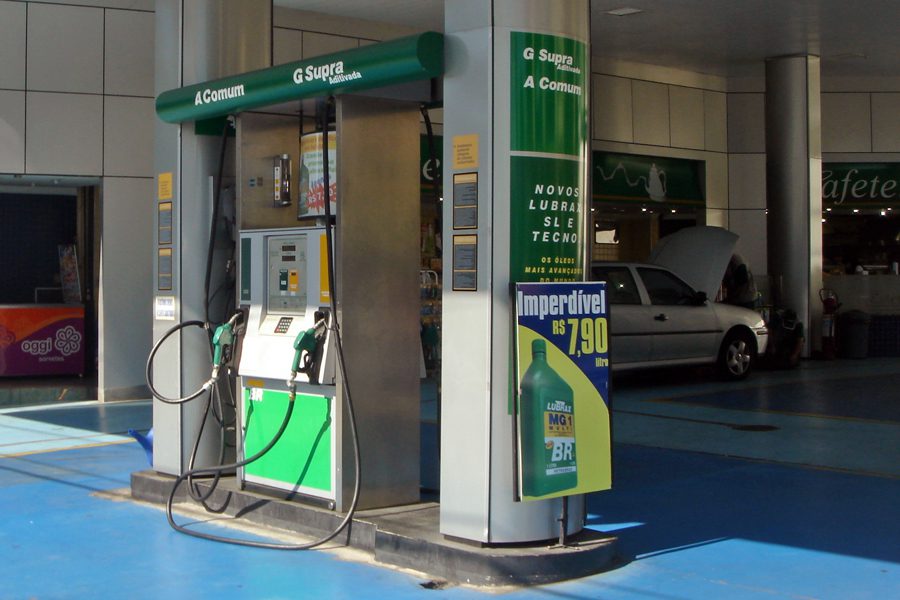SGCI News
Malawi relies on ethanol as a sustainable and economical alternative to imported gasoline. Malawi is working to increase its ethanol production through public-private partnerships with the aim of producing a…
- Malawi works to increase ethanol production
- He believes that ethanol can be a viable alternative to expensive gasoline.
- Few vehicles currently run on ethanol due to insufficient production
Malawi relies on ethanol as a sustainable and economical alternative to imported gasoline.
Malawi is working to increase its ethanol production through public-private partnerships with the aim of producing a cheaper, cleaner fuel, according to a senior official.
Ethanol, which is made from the starch in corn kernels, transformed into sugar and then fermented, is less polluting than gasoline and therefore emits less carbon dioxide.
However, yields are rather low, which is a problem, not to mention the high production costs.
Gift Kadzamira, Director General of the Malawi Commission for Science and Technology (NCST), says the country’s Ministry of Energy is working with Malawian and foreign companies to increase production of this biofuel.
” The government, on the basis of reports demonstrating that the use of ethanol can significantly reduce the need for foreign exchange, stabilize fuel prices, lower vehicle maintenance costs and reduce greenhouse gas emissions, believes that this is a realistic project, if our country is able to overcome current obstacles and meet future expectations, especially with an expanding vehicle fleet ,” she adds.
The initiative, led by NCST and funded by the International Organization for Scientific Research (IOSRS), aims to promote economic growth, protect the environment and help Malawi achieve energy self-sufficiency.

The project, which began in 2012 based on recommendations made by researchers, has focused on increasing ethanol production capacity, setting competitive tariffs, opening filling stations and encouraging the conversion of vehicles to run on ethanol.
It first suffered a setback when the government adopted a policy indexing the price of ethanol to that of gasoline, making ethanol production less profitable for producers. However, the government later reversed this policy, giving a boost to ethanol production.
Gfit Kadzamira points out that, although the project is just getting underway, progress has already been made, with the creation of infrastructure and the conversion of vehicles.
By Paul Adepoju
” A few cars have been imported into the country to demonstrate the feasibility of the project. In addition, Malawian technicians have been trained to convert vehicles to run on ethanol “, she explains.
With the price of petrol on the rise, this initiative is proving very popular,” she adds. However, few motorists have adopted this fuel, due to insufficient ethanol production. This is one of the main problems facing the project.
In 2022, following the installation of a new government in Malawi, there were also delays in convincing certain ministers, she points out.
Total annual ethanol production in Malawi stood at 18 million liters in 2023. ” This is not enough to meet future ethanol needs ,” she adds.
Long-term success
Gift Kadzamira insists that NCST is determined to overcome the challenges preventing the ethanol project from developing fully.
” We need to ensure that all players in the system, from government to industry to researchers, are on the same page and working together to achieve a common goal. “
She believes that this approach is crucial if current production shortfalls are to be overcome and ethanol is to become a long-term alternative to gasoline in Malawi.
IOSRS plays an essential role in providing funding and facilitating skills development within the Malawian research community,” she adds.
” We have been able to provide resources and funding to more researchers and innovators in the country thanks to the support of IOSRS ,” says Gift Kadzamira.
IOSRS supports scientific research granting councils in Africa to provide financial support for research and strategies based on reliable data that contribute to the economic and social development of countries.
Nghiem Phu Nhuan, biofuel researcher and co-author of a book on biofuel engineering process technology, believes that the main problem in producing ethanol on a commercial scale is cost.
But, he says, progress has been made in several areas and technical advances are promising, so costs could be reduced.
He is optimistic about the future, but says it’s hard to say when ethanol will be widely adopted.
” I believe the future is bright for us. But I’m not in a position to say when ethanol will become a viable industry “, he adds.
IOSRS is a multilateral initiative set up to strengthen the institutional skills of public funding agencies for scientific research in sub-Saharan Africa, with the aim of providing financial support for research and strategies based on reliable data that contribute to economic and social development.
Related News
Voices of SGCI: Council leaders on the direction and ambition of SGCI 3
At the African Union’s Science, Technology and Innovation Week in Addis Ababa, earlier this month, leaders of science granting councils reflected on what SGCI Phase 3 represents for Africa’s science and innovation systems. From ownership and alignment to stewardship and sustainability, here are their voices…
Building Africa’s science future: inside the SGCI alliance
As Phase 3 of the Science Granting Councils Initiative launches on the margins of the African Union Summit in Addis Ababa last week, the SGCI Alliance Chair explains why this moment marks a decisive turning point for African science. Cephas Adjei Mensah describes what is…
Open call: Support for science granting councils in Sub-Saharan Africa
The International Development Research Centre (IDRC), through the Science Granting Councils Initiative (SGCI), has launched a call for proposals to support science granting councils in Sub-Saharan Africa in the establishment and operationalisation of the Capacity Strengthening Hub under Phase III of the SGCI-3. The Hub…
SGCI funded projects
Rwanda’s integrated approach to sustainable agriculture and nutrition
Project Titles & Institution Areas of Research Number of Projects being funded Project Duration Grant Amount In-Kind Distribution Council Collaboration with other councils





